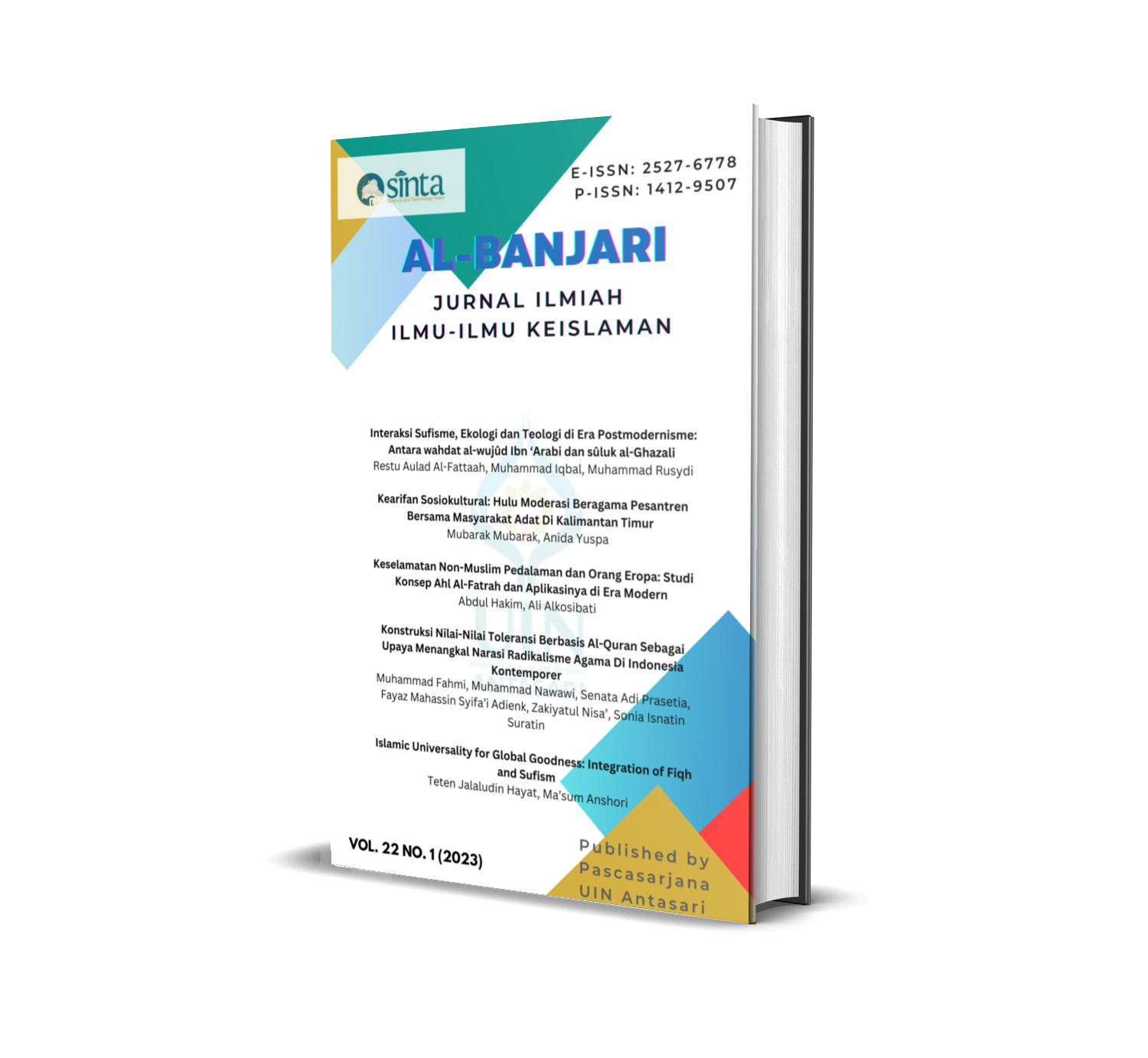Political Religious Conflicts and the Process of National Integration after the 2019 Elections in Kalimantan (Study in the Provinces of South Kalimantan and Central Kalimantan)
DOI:
https://doi.org/10.18592/albanjari.v22i2.12404Abstract
The aim of this research is to determine (1) the conflict map with political and religious nuances after the 2019 election in Kalimantan society, (2) the process of national integration after the 2019 election in Kalimantan society, and (3.) the interaction of conflict with integration in Kalimantan society. The research uses a combined approach (quantitative-qualitative) with data mining techniques using questionnaires, in-depth interviews, and documentaries. Quantitative data analysis uses descriptive analysis of frequencies and percentages with the SPSS program, while qualitative data analysis uses data reduction, data display, and verification techniques. The results of the research are: (1) in the 2019 election there was a conflict with religious-political nuances among the people in South and Central Kalimantan; (2) the conflict is caused more by competition for legislative candidates, bringing in religious factors; (3) the involvement of religious figures contributes to the conflict and has a big influence; (4) the religious knowledge of the conflict followers is quite extensive; they have good religious behavior and practice and are devout in worship; (5) religious lecture media and religious print media also influence conflict conditions. The influence of social media (medsos) played a very big role in the occurrence of conflict in the 2019 Election; (6) the tendency of people's political choices towards parties that are not parties based on religion (religious parties), namely nationalist parties, is quite large; (7) religious factors are seen as not playing a strong enough role in realizing post-conflict integration; (8) respondents are not optimistic that religious harmony will be stronger after the 2019 election; (9) there is a significant relationship between conflict and integration in the 2019 elections in the people of South Kalimantan and Central Kalimantan; (10) there is a significant relationship between conflict sub-variables and conflict variables; (11) there is a relationship between the integration sub-variables and the integration variables. Key words: Conflict, Religious-Political, Integration, 2019 ElectionDownloads
Published
2024-02-29
Issue
Section
Articles
License

This work is licensed under a Creative Commons Attribution-ShareAlike 4.0 International License.
Authors who publish with this journal agree to the following terms:
- Authors retain copyright and grant the journal right of first publication with the work simultaneously licensed under a Creative Commons Attribution License that allows others to share the work with an acknowledgement of the work's authorship and initial publication in this journal.
- Authors are able to enter into separate, additional contractual arrangements for the non-exclusive distribution of the journal's published version of the work (e.g., post it to an institutional repository or publish it in a book), with an acknowledgement of its initial publication in this journal.
- Authors are permitted and encouraged to post their work online (e.g., in institutional repositories or on their website) prior to and during the submission process, as it can lead to productive exchanges, as well as earlier and greater citation of published work (See The Effect of Open Access).


































